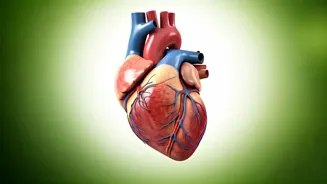The Walking Solution
The secret to better heart health is surprisingly simple: a brisk walk after every meal. This habit requires no special equipment, expensive gym memberships,
or specific location. It offers significant benefits for your heart and overall health. If walking after meals were a medication, it would be one of the most widely prescribed drugs worldwide because it addresses several heart disease risk factors at once. This practice works wonders to regulate your blood sugar levels, and reduce the build up of bad fats, improves circulation, and keeps you awake.
Blood Sugar Control
After eating, walking effectively helps muscles absorb glucose. This action reduces blood sugar spikes and decreases the amount of insulin your body needs to produce. Fewer insulin molecules in circulation lead to reduced inflammation and improved metabolic health. Studies show that gentle exercise after meals protects arteries and mitigates high blood sugar effects. These benefits extend to multiple areas of your health. The body breaks down carbohydrates into glucose, which is used by cells for energy. When blood sugar is high, arteries experience inflammation and oxidative stress, which can damage blood vessel linings and heighten the risk of heart disease.
Fat Metabolism Boost
Walking after meals also boosts fat metabolism. After eating, particularly fatty meals, triglyceride levels in the blood can increase, which raises the risk of heart disease. Walking helps your body break down fats more quickly, keeping your blood healthy and stopping plaque from forming in your arteries. Post-meal walks also lead to an increase in the release of nitric oxide by blood vessels. This substance relaxes and widens your blood vessels, improving blood flow, lowering blood pressure, and reducing stress on your arteries and heart. It's a straightforward yet effective way to ensure your heart health.
Energy & Digestion
Besides its benefits for your heart, post-meal walking boosts energy levels. It can combat the fatigue and sluggishness many people feel after large meals, helping you think more clearly. Walking also helps your body alternate between using carbohydrates and fats as fuel throughout the day. Moreover, it aids in digestion by stimulating your digestive system. It also supports your lymphatic system, aiding in the removal of waste and toxins from your body. This simple habit can improve your insulin sensitivity, which reduces your chance of developing type 2 diabetes. It will also help to lower stress levels, improve your mood, and enhance concentration.
Get Started Today
Implementing this habit is incredibly easy. Begin by putting on comfortable shoes once you've finished eating. Then, take a gentle 15-minute walk. Start with shorter walks, such as 5 or 10 minutes, and gradually increase the duration to 15 minutes. Consistency is key, and even short walks can lead to notable improvements in your health. Practicing this post-meal walk is a safe, affordable, and effective way to decrease your chances of experiencing a heart attack by up to 40 percent. By making this a daily routine, you will also be regulating blood sugar, reducing bad fats, increasing circulation, and staying alert. It also helps with digestion by stimulating stomach and intestinal activity.












